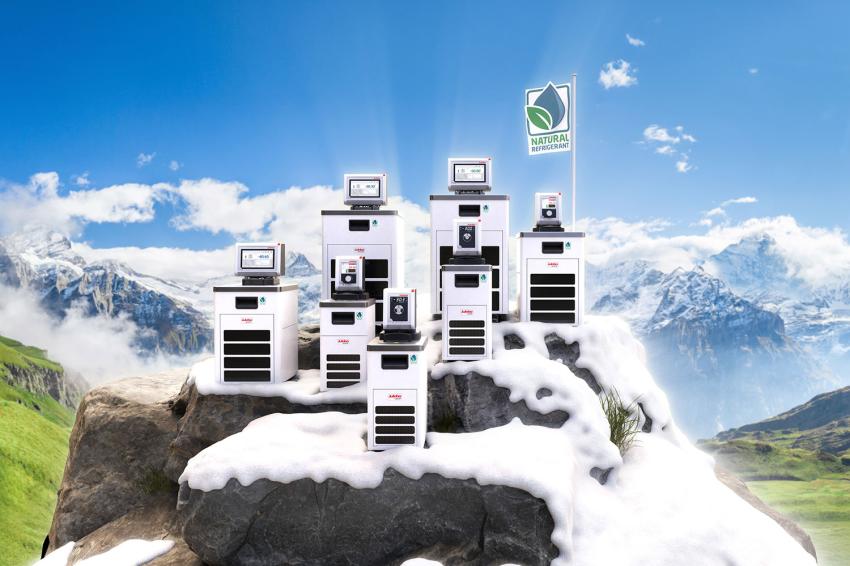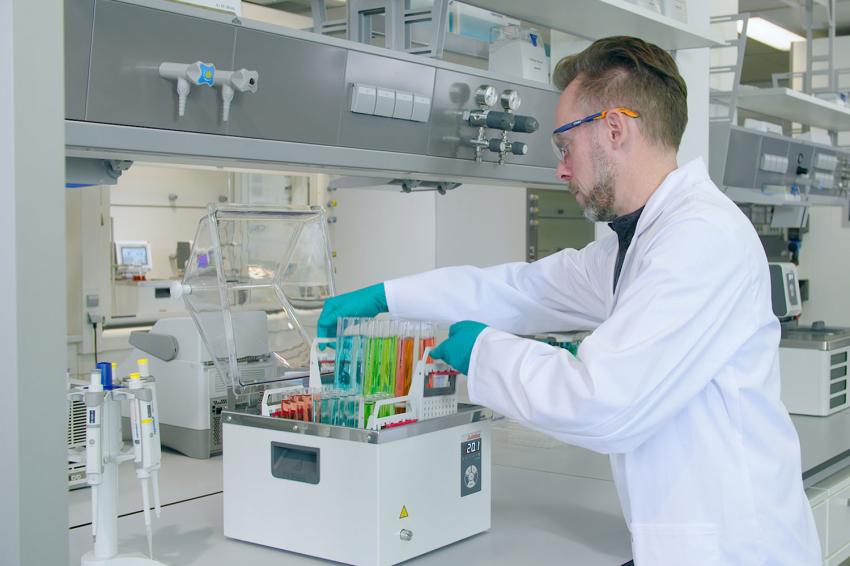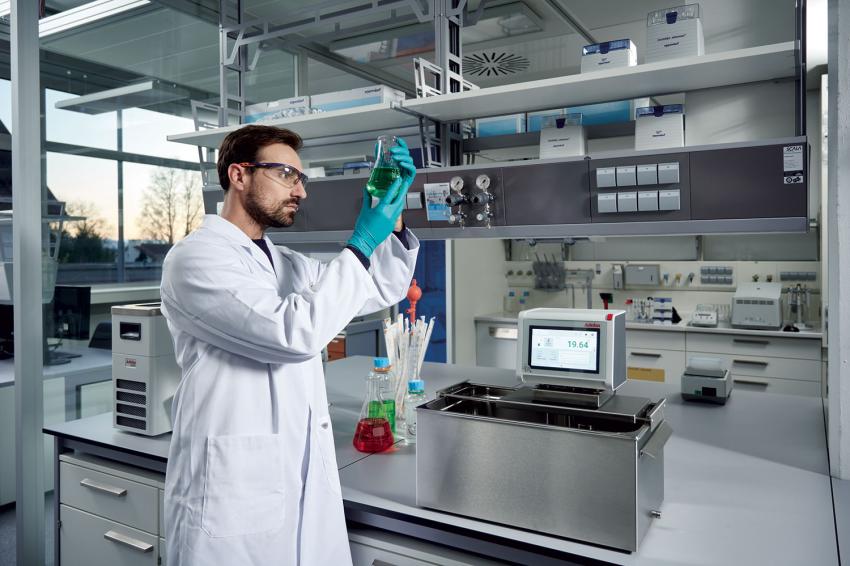Temperature Control in Basic Medical Research
The temperature control of samples and cultures while maintaining the temperature range is one of the routine tasks of basic medical research.
Basic research is a continuous process of gaining knowledge. At the same time, medical research is constantly faced with new challenges. Current examples include research into common diseases such as diabetes, cancer or dementia. There are also allergies and infectious diseases that affect an increasing number of people. The most important fields of research include system biology, genome research and neuroscience.
An example from the field of molecular active ingredient biochemistry: Here, scientists are working on the early development of active ingredients for the treatment of neurodegenerative diseases. In the pre-clinical setting, they begin the search for target proteins. As part of this, they examine possible active substances that can prevent the harmful influence of the triggering enzyme on the metabolism. They then subject them to further investigation. In vitro live test systems using living cells play an important role in research laboratories.
Temperature Control Applications for In Vitro Test Systems
The quality of the sample material has a great influence on the test results. If scientists manage to handle the cells delicately throughout the entire process, they can create the best starting conditions. Another aspect: Efficient work is also crucial for rapid progress in basic research. For this purpose, the laboratories make use of the technical possibilities for preserving and multiplying cells. Temperature control solutions play a decisive role in this. For example, cryopreserved cells, which are often used, must be thawed in a water bath at exactly the right temperature. The cell material can only be optimally regenerated under specific conditions. Temperatures that are too high can cause the cells to die, while temperatures that are too low slow down the metabolic processes.
New cell culture technologies also allow for efficient multiplication of high-quality samples. Testing optimal cell culture conditions for specific cells is also an important field of research. For example, the ability to remove partial quantities from the culture significantly increases productivity. Thermo-responsive microcarriers make this possible. Here, too, temperature control applications are the focus: By temporarily lowering the cell culture temperature from 37 to 32 °C, the cells detach from the growth surface. The required quantity of cells is then ready for use. The circulator connected to the bioreactor raises the temperature back to the set level after collection so that the remaining cells can continue to multiply.
Standard Task in Basic Research: Temperature Control Application
Temperature control of samples, laboratory devices and cultures is a routine task in basic medical research laboratories. Precise compliance with the temperature range is a core requirement. After all, the temperature of the devices often has a direct effect on cell material.
A high level of temperature stability in the water baths eliminates unwanted temperature fluctuations. Devices for demanding applications can be counter-cooled for this purpose. Intuitively designed adjustment options ensure convenient and safe operation. Accessories such as test tube racks or shelves also contribute to this.
Depending on the application, circulators in a variety of designs can be used. These include heating immersion circulators and bath circulators, but also circulators that are suitable for temperature control of external applications. Basic research laboratories also often have increased requirements for the universal usability of their instruments. With a wide working temperature range and a variety of designs, JULABO instruments offer the necessary flexibility. The range of accessories allows adaptation to customer-specific applications.
Sponsored by











